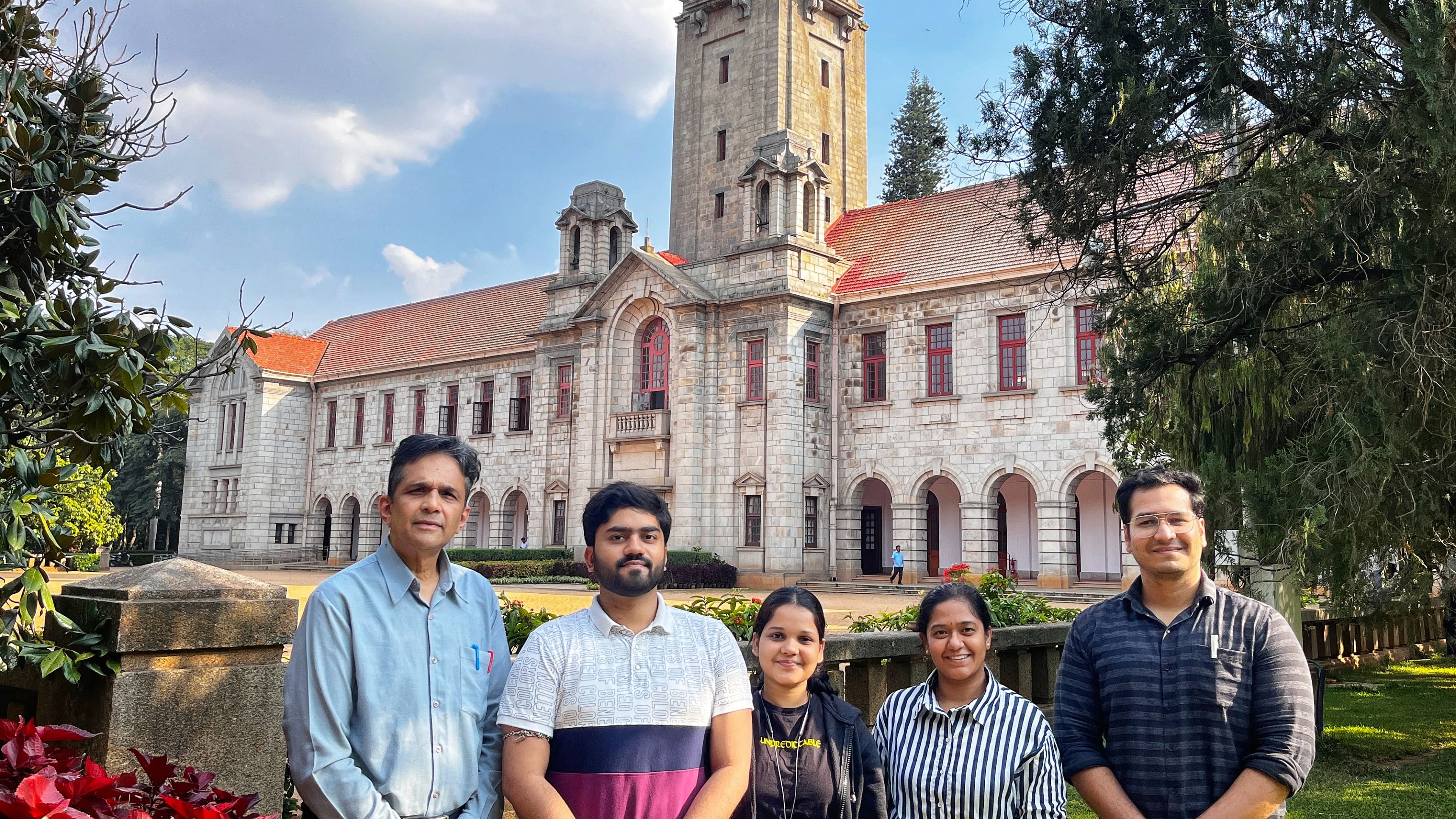
The research team (L-R) Dipankar Nandi, Avik Chattopadhyay, Nikita Ramteke, Sirisha Jagdish, and Aaghosh Karhale.
Credit: IISc
Bengaluru: A new study by researchers at the Indian Institute of Science (IISc) has proposed approaches to make non-responsive cancer cells respond better to immunotherapy.
Contemporary cancer immunotherapy involves the stimulation of immune cells, or T cells, to fight tumours. The process depends on the production and functioning of Interferon-gamma (IFN-γ), a cytokine (a small signalling protein) that binds to tumours and induces apoptosis (cell death). These approaches affect fewer normal cells when compared to chemotherapy or radiation but are either very expensive or less efficient.
The researchers assessed the response of different types of cancer cells to IFN-γ activation and found that only some types of cancer cells respond well to it. The study was published in Frontiers in Immunology.
Avik Chattopadhyay, first author and PhD student at the Department of Biochemistry, IISc, pointed to reports that have found that if IFN-y amounts are low or there are defects in its signalling, the tumours don't respond well to the immunotherapy.
Laboratory treatment of cancer cells with IFN-y indicated that the cells were releasing acidic byproducts like lactic acid. The researchers traced the higher amounts of lactic acid to increased glycolysis, a series of chemical reactions that extracts energy from glucose.
Selective response
They found that cancer cell lines derived from the liver and the kidney showed increased production of nitric oxide (NO) and lactic acid upon IFN-γ activation. This increased the production of toxic reactive oxygen species (ROS) leading to oxidative damage which kills the cancer cells. The cell lines derived from the colon and skin, however, did not produce NO or lactic acid after the IFN-y treatment, indicating that they might respond poorly to immunotherapy.
The researchers tested different ways to see how these non-responsive cancer cells can also be tweaked to produce lactic acid and NO. They found that treating the cells with potassium lactate reduced cancer cell growth drastically, even in the initially non-responsive cancer cells.
IISc said this observation, that lactic acid has a key role in the cancer cells’ response to immunotherapy, was “surprising” to the researchers as lactic acid is often thought of as a dead-end metabolic product.
Dipankar Nandi, Professor at the Department of Biochemistry, IISc, and corresponding author of the study, said the study is a proof-of-concept and more experiments need to be conducted in animal models to validate it.